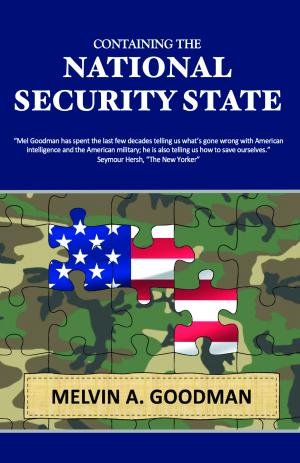Bio

Melvin A. Goodman is a senior fellow at the Center for International Policy in Washington, DC, and an adjunct professor of international relations at Johns Hopkins University. His 42-year government career included tours at the Central Intelligence Agency, the Department of State, and the Department of Defense’s National War College, where he was a professor of international security. His books on international security include “A Whistleblower at the CIA: The Path of Dissent;” “National Insecurity: The Cost of American Militarism;” “Bush League Diplomacy: How the Neoconservatives are Putting the World at Risk;” “The Wars of Eduard Shevardnadze;” “The Phantom Defense: America’s Pursuit of the Star Wars Illusion;” “The End of Superpower Conflict in the Third World,” and “Gorbachev’s Retreat: The Third World.”
He has written numerous articles and opeds that have appeared in the New York Times, the Washington Post, the Baltimore Sun, Foreign Policy; Harper’s Magazine; the Bulletin of the Atomic Scientists; and the Foreign Service Journal. His TV appearances include the PBS Newshour; the Amy Goodman Show; NBC; and CBS. He has lectured at college campuses all over the country as well as to numerous chapters of the World Affairs Council, the Council on Foreign Relations, and various veteran organizations. In 1991, he testified before the Senate intelligence committee in order to block the confirmation of Robert M. Gates as director of the CIA.
Recent News and Latest Book
Meet the Newest Apologist for Israel: Rear Admiral John Kirby
Tuesday’s press conference highlighted the worst of the administration’s predictable defenses and apologies for Israel’s illegal and immoral military campaign against Palestinian civilians. Once again, the worst of Kirby’s remarks were not referenced in the Washington Post and received an anodyne one-sentence summary in the New York Times. I believe it is important to understand the meaning and implications of Kirby’s callous and callow remarks.
Washington Post Believes U.S. & Israel “Can Get Back on the Same Page”
President Biden seems to believe that the recent U.S. abstention on the cease-fire resolution at the United Nations Security Council and the feckless warnings about avoiding a humanitarian nightmare in southern Gaza allow his administration to pose as an “honest broker” between Israelis and Palestinians. The United States has never been a genuine “honest broker.”


